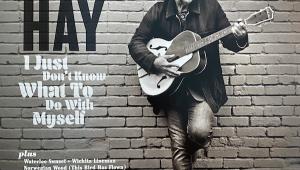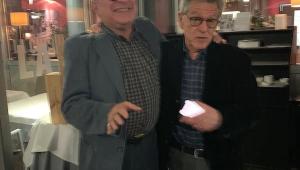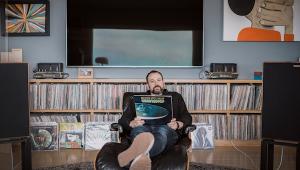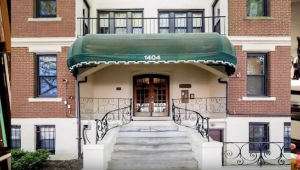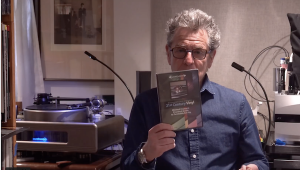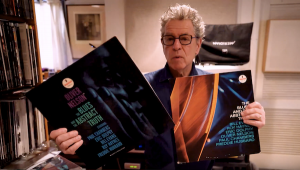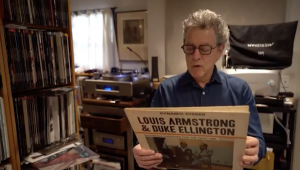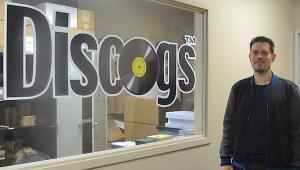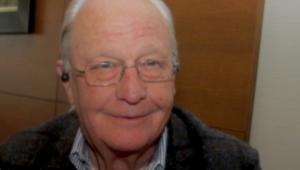Joan Armatrading--The musicangle interview
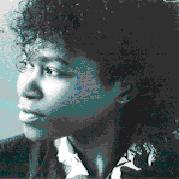
In a career spanning almost 30 years and 18 albums, Joan Armatrading has established herself as one of the most durable and respected artists in popular music. Her honesty and integrity as both a musician and world citizen are rare in a field that regularly breeds shooting stars.
Born in the West Indies on the island of St. Kitts in 1950, and moving to England when she was 7, Armatrading absorbed both the lilting, sunny rhythms of the Caribbean and the grittiness of post-industrial Birmingham. Her tough, yet vulnerable musical stance has influenced two generations of performers, attracted to her unique, difficult to categorize brand of music.
Self-taught on a pawn shop bought guitar, Armatrading began writing songs at 14, left school at 16 and was signed to U.K.’s Cube records at 21. Her older songs have an enduring, timeless quality that continues to attract legions of young fans who find 21st century Armatrading delivering the musical goods as effectively as ever. No wonder in a VH1 poll she was voted one of “The Most Influential Women In Rock.” Before Joan, how many female guitarists played electric lead on stage?
Twice Grammy nominated for “best female vocalist,” with numerous silver, gold and platinum albums to her credit, and winner of the Ivor Novello award for Outstanding Contemporary Songwriting in 1996, Ms. Armatrading’s off-stage accomplishments are as significant as her on-stage. She has been honored by the Queen and is one of the few female artists ever to receive an MBE. She’s been awarded several honorary degrees, and has achieved a BA with Honours from the Open University. This past December she earned a Doctorate in Music from the University of Birmingham and was awarded an honorary degree by the John Moores University of Liverpool.
Shortly after Denon releasedLover’s Speak and just before the beginning of her American tour, I called Joan and spoke with her about her long career, and her new album.
MF: Most people I know who are over 50 have a somewhat cynical viewpoint about the power of love or at least its durability. The title tune of the record Lover’s Speak seems to come from such an idealistic and fresh vantage point. How do you maintain such an attitude?
JA: It’s quite nice to be in love!
MF: Yes, it sounds great.
JA: I think if you’re here, you should enjoy being here.
MF: Is this a new development in your life?
JA: No!
MF: So you’re just writing from a basic perspective
JA: I’m a very optimistic person and I think that there will always be something good about to happen, and if something bad happens there’s a reason and that some good will come out it.
MF: Well it sounds from that song, that at some level you want that feeling of being in love and you’re optimistic about having it, but the song is not so much about having it.
JA: That song is not about me even though it says “I want to learn the language of love.” It’s really me looking at people in love. I think once people are in love and they talk to each other and they kind of hold each other and the expressions that they give to each other it seems very secretive and special as if the language that they use is unique to them. And when I say “unique” I mean unique to each individual couple. And I’ve always thought “what is it that they say?” Of course I know what they say is everyday language: “Did you remember to pick up the laundry?” I mean it’s normal stuff but because you’re in love and they’re connected, it seems special and unique.
MF: Well that’s the point I was making because sometimes when you get to a certain point in your own life and you look at people in that situation and you say “youthful folly,” or you say “wait until they have to go pick up the laundry, or take the dog out,” all that other stuff just dissipates. I know from my own perspective… so the song was very uplifting to me. It gave me a sense of hope that maybe I can find that freshness again...
JA: Well good!
MF: Now “These Times” sounds quite portentous—like it was in some way referring to what happened here on September 11th.
JA: No. I wrote it before that, but it made me think of the times that we’re in. It was written because of war. It was written because of…it’s not related to my history degree but my degree is in history. And the history between the World Wars and it wasn’t written because of this but I am quite interested in a comparative history of America and when you look at wars, it’s quite a desperate thing, isn’t it?
MF: I would agree it’s a desperate thing. We have a president here now who thinks you just go out and do it and it’s no big deal.
JA: When people are thinking about loved ones not there having to be out there in hostile situations, that’s the feeling I wrote about in “In These Times.” It was for those kinds of situations but it’s the kind of song that I think can relate to any desperate times that you’re in. It doesn’t have to be a conflict. It can be anything you’re going through.
MF: Well it comes across as having a personal relationship being the foreground for a backdrop that’s extremely dramatic.
JA: I did mean it, but not that specific event. I see why a lot of people seem to relate it as you did.
MF: And I thought I was being so originally perceptive.
JA: I’ve just read a letter from somebody that said they were driving along in their car playing the album for the first time and that song came on and his wife was going through some things and they had to stop and it expressed what they were going through at that time.
MF: Then it’s obviously a great song in that it illicits different meanings to people and they can personalize it to their experience. There have been many changes in the meaning and character of pop music over the last few years. How have they affected your music making?
JA: I just do what I do. Some people say “Why don’t you do cover versions?” “Why don’t you change with the times and do what the current music is that’s successful?” “Why don’t you sing with somebody else?” I can only do what I do, basically. I can’t do all of those things because while I might try to change and do rap music but…
MF: Don’t! Well one of the interesting things about your music is that it has always been difficult to categorize, to put into a box and say “it belongs here.” I know that my ex-girlfriend was working at A&M Records during the early ‘80s. A&M had a very difficult time trying to market you figure out where to put you and they came out with a promotional EP—I don’t know whether you ever saw it, but it embarrassed the hell out of me and I always wanted to ask you if you saw this marketing campaign called Free Joan Armatrading.
JA: The most embarrassing. I actually think that didn’t help me at all! But that was incredibly embarrassing.
MF: I was embarrassed for you and I didn’t even know you.
JA: It was absolutely dreadful.
MF: It made you into a victim where I don’t think you were a victim.
JA: I’m not a victim at all. And it did (make her seem like a victim). And of course nobody even asked me about it. They just did it.
MF: Those were some days in the record business! Of course now we’re in totally different circumstances. Now the music business has changed and many people think the music business is broken, yet it seems to me for an artist like you, with more avenues of communication open, it could be better for someone like you.
JA: I don’t know how to answer that question. It’s possible. It’s still a case where as long as people are getting to know that the music exists and still get to hear it—because knowing it exists, if you don’t get to hear it and get to identify with it and say “I like that,” it doesn’t do any good.
MF: Do you have a website?
JA: Yea, sure (www.joanarmatrading.com), but you can’t get to everybody that way. You still need a way of letting everyone know you’re there. You can’t just rely on your own website.
MF: You’re touring in support of this record. What kind of venues are you playing.
JA: A mixture. Some festivals, some headliners, some indoor/outdoor shed type venues.
MF: How long are you going to be on the road?
JA: I have it in two parts. I’m not sure about the second bit, but the first is about 6 weeks.
MF: How long has it been since you’ve done this?
JA: A couple of years.
MF: Are you looking forward to it?
JA: Yes! I’ve just finished the English tour which was great. It was a sold-out tour. I can’t believe how quickly it went. I’ll be coming to America and I’ll do some dates in Europe and then I’ll come back to America.
MF: What was the demographic of the crowd, age wise?
JA: It was a mixture. It’s people who have followed my music for a long time, and then their children (laughs). And then youngsters who are not anybody’s children in that sense, but just youngsters who have discovered my music.
MF: That’s got to nicer in a way than having the long timer followers show up.
JA: I think in order to be able to tour as I do, because although I didn’t have record out between What’s Inside and this album I’ve done 3 tours in between and that’s going all over the world—America, Australia, Europe…
MF: This is while you were in school getting your degree?
JA: Yes.
MF: I admire you for that!
JA: If you don’t have people who are new to your music I don’t think you can sustain very well. Priorities change and I think there are people—older ones—who would say “as much as I enjoy your music, I don’t feel like coming to a gig because I’ve been to 10 others…
MF: They just don’t want to leave the house..
JA: So you have to have new people to be able to sustain. You just have to.
MF: Now you’ve worked with some of the greatest producers. Some of the people I really admire. I mean you’ve worked with Gus Dudgeon, Steve Lillywhite, David Tickle and Glyn Johns. How are these people to work with?
JA: Great! All of them.
MF: Now you’re a producer. How did their methods affect what you do?
JA: I’ve learned from everybody I’ve works with including musicians and producers. From most of them I’ve learned good stuff, only one I learned from all of the mistakes I think he made.
MF: Do you want to identify that person?
JA: That was my second album (Back to the Night, 1975, produced by Pete Gage). Not one of the names you mentioned. Yet that was really good. That was probably one of the best experiences because there were so many mistakes and it really showed me all of the things not to do. Working with all the people that you mentioned, they had such good choices and good communication skills and obviously incredibly talented in terms of being actual engineers or in communication with engineers and musicians, and in having a good atmosphere in the studio. And to appreciate my talents. It wasn’t a matter of squashing my ideas. I’m very definite about what I want. I know very much what I want. I was able to communicate. Because I really love to write, but I love to arrange. So it’s important for me when I’m in the studio that the arrangements I’ve made are going to happen. You don’t want to work with somebody who says “well, I’m the producer, and this is how it goes.”
MF: Well I don’t think that works for anybody.
JA: But I’ve had that! I refer you to the second album (laughs)! That just doesn’t work.
MF: The 3rd record (Joan Armatrading) that Glyn Johns produced. That’s your best sounding record. I don’t know if you care about that, but the sound of that record is absolutely unbelievable.
JA: It’s certainly one of the best sounding records, but the first was also a great sounding record and I think Walk Under Ladders is also great sounding record.
MF: Now on this record, you produced it yourself. Was it in a studio? A home studio?
JA: I did it in a studio. Not a home studio.
MF: Forgive me for getting nerdy, but was it recorded analog or digital?
JA: Digital. I did it on Logic.
MF: Are you happy with the sound?
JA: Yes, I think it sounds great. I’m playing everything so there’s no programming, there’s no sequencing. I just play everything. So that gives it a real warm sound.
MF: It’s a very clean sounding recording. You play everything but the horns and the drums?
JA: Yes.
MF: So you’ve been very busy writing, producing and someone else engineered?
JA: Yes.
MF: Was it a well known studio that I would have heard of?
JA: No. But when I do my demos, I play everything on my demos and I engineer my own demos. I wouldn’t for a minute contemplate engineering an album because I leave that to those who can do it better than I can do.
MF: Well I bet you’re not bad at that too! What are the pitfalls of self production. Do you ever lose perspective? Do you find you need to bounce it off of somebody else to know what you’re doing?
JA: I don’t. Other people might. I know what I want. That’s the thing. I know how I’d like the music to sound.
MF: You start with a basic guitar track?
JA: Well if its guitar, its guitar. If it’s piano, then piano.
MF: And you play both?
JA: I play both. But not at the same time (laughs).
MF: What kind of guitar do you play these days on stage?
JA: On stage, me and two guys, Gary Foote plays drums, sax and flute on stage, but not on record.
MF: Who plays on the record?
JA: A chap called Moe Bould plays drums. Playing keyboards on-stage is Spencer Cousins. Playing keyboards on the record is me. On stage I play an acoustic Ovation guitar and an electric Tom Anderson guitar.
MF: Your new record came on the “on-hold” system while I waited to speak to someone at a company last week. Is that good
JA: I think so!
MF: I wonder how that was arranged. A promotional thing? Or just a fan putting it on there.
JA: Who were you on hold with?
MF: I don’t remember. I’m on hold so often, who can remember. In fact, I have to tell you that I once did a parody of your voice.
JA: You did?
MF: I called you…you’re not going to like this… I called you Joan Voiceintraining.
JA: (laughs).
MF: If I had the nerve I’d play it for you. Since I am a big fan of yours it was actually a very gentile satire.
JA: What did you do?
MF: I did “Down to Zero” and it was a commercial I was doing for a hi-fi store and I said here’s what Joan Armatrading sounds like through some other company’s hi-fi equipment and here’s what it sounds like through the advertisers gear. When it was the sponsor, I played a snippet of your record. When it was the competition, I played me. Legal or not it got you airplay!
JA: (laughs).
MF: How did you connect up with the Denon label?
JA: What’s Inside was on Savoy.
MF: Which was also a Denon label. And they’re supportive and you think they’ll do a good job promoting the record.
JA: I’m hoping they’re going to do a good job. You shouldn’t be asking me that. You should know.
MF: Well they did a good job with me.


